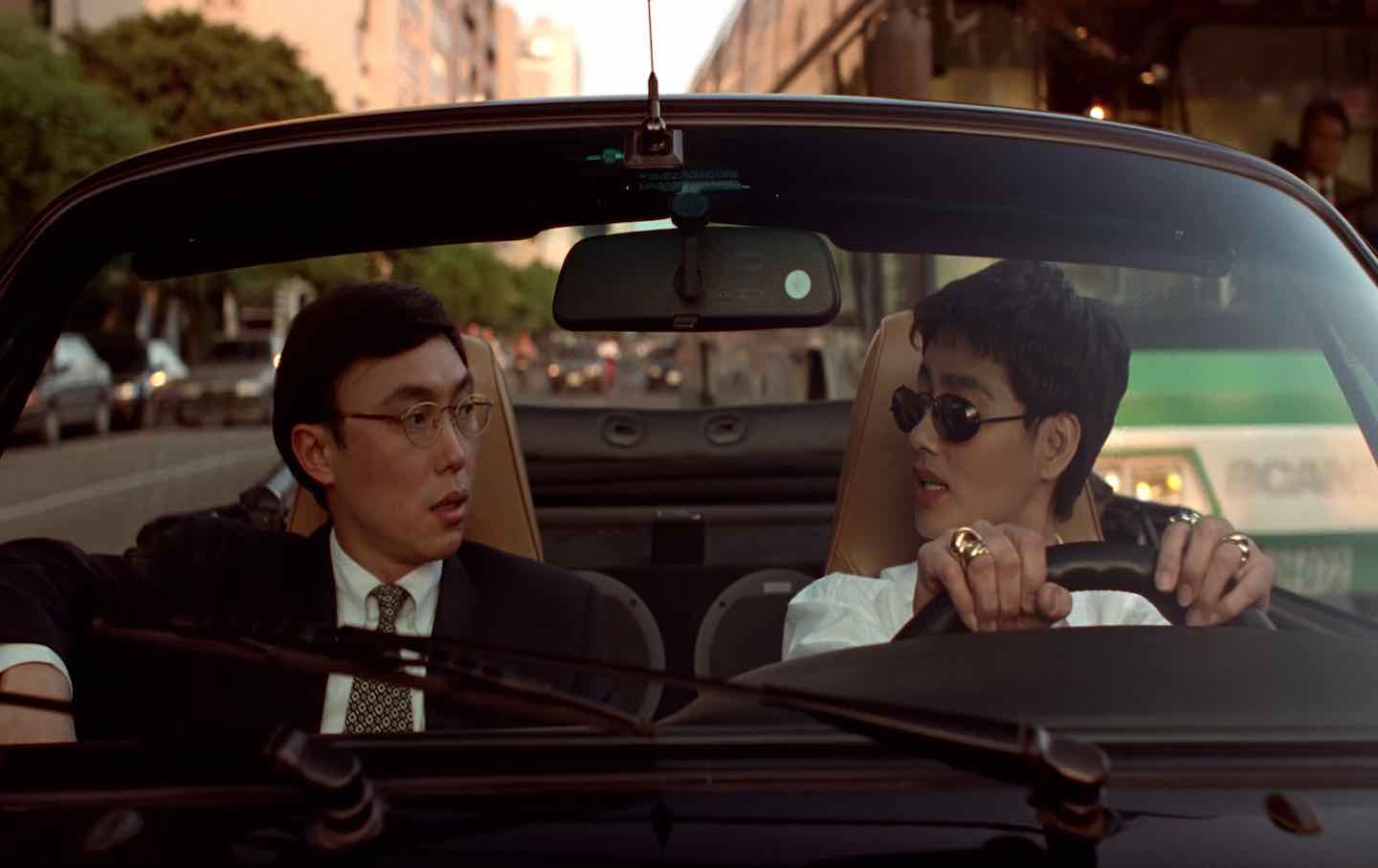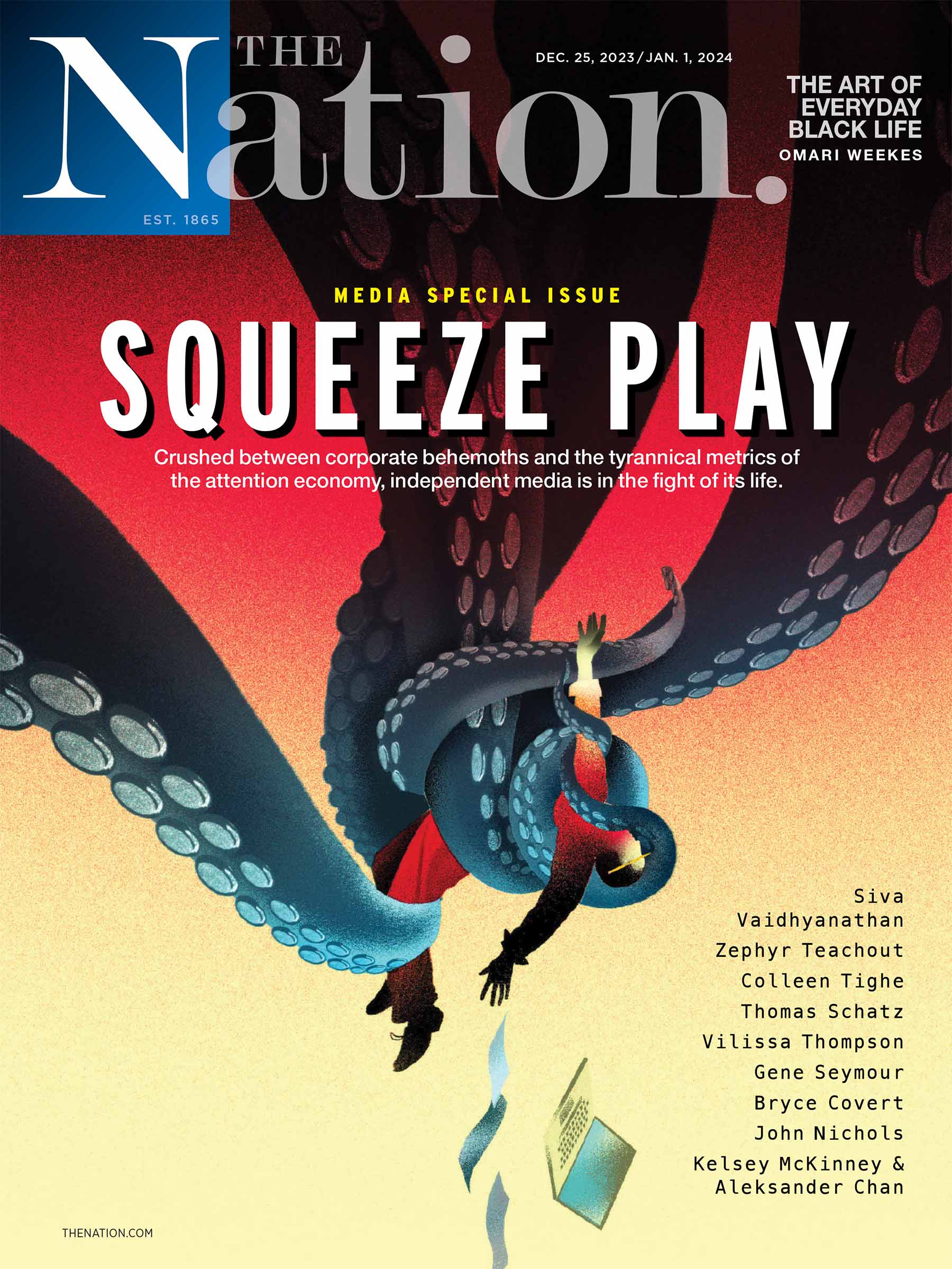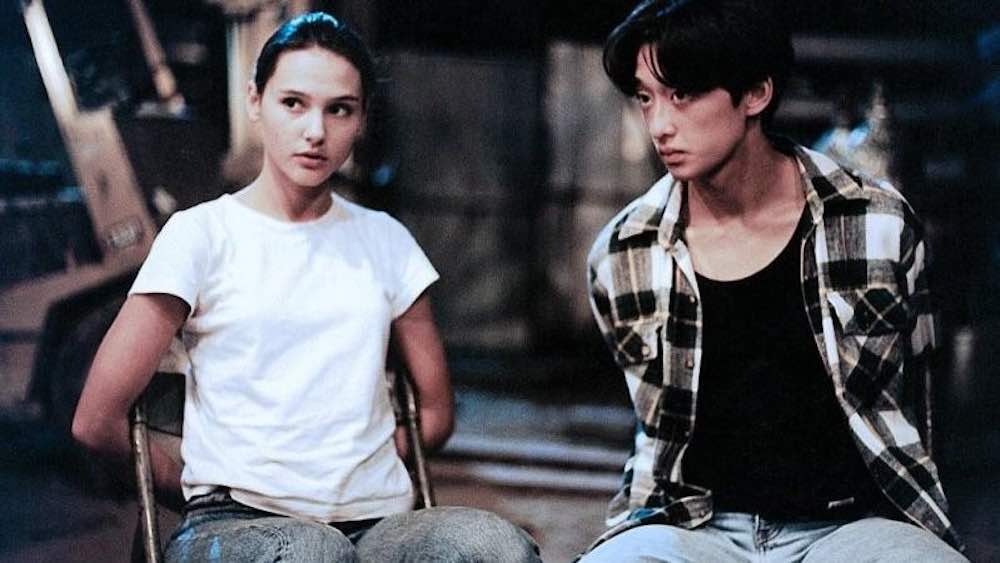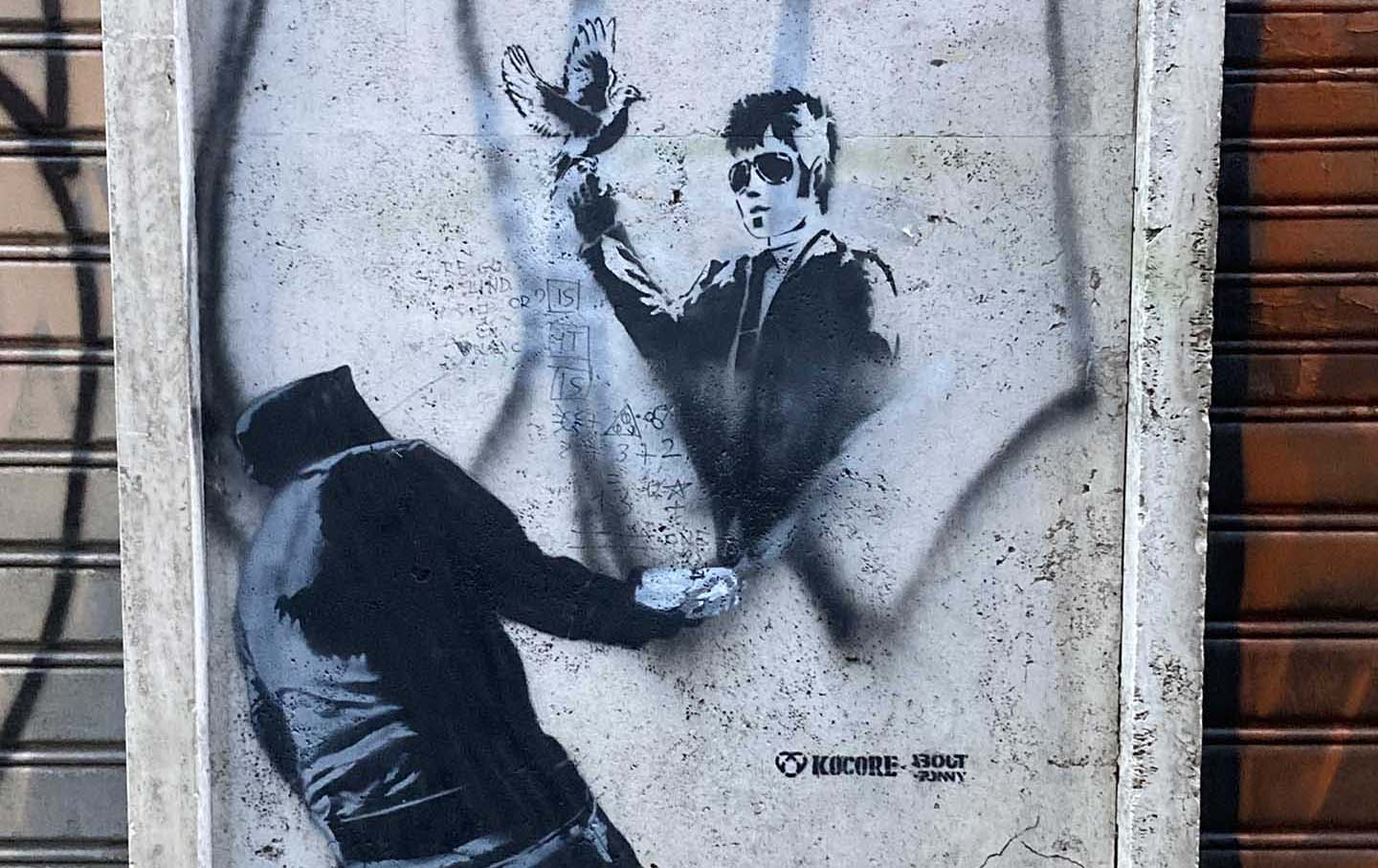Books & the Arts
/
January 11, 2024
His dark comedies and family dramas of life in late-20th-century Taiwan depict a generation’s crisis, confronting the forces of finance and globalization.
 A scene from Confucian Confusion. (Courtesy of Janus Films)
A scene from Confucian Confusion. (Courtesy of Janus Films)
Taiwan’s rapid, unprecedented economic boom in the latter half of the 20th century profoundly altered the country’s social structure and reconfigured the lives of its citizens. Director Edward Yang deploys this historical context as the foundation for his films, which depict urban malaise amid global capitalism’s expansion of choice. In Mahjong (1996), Yang explicates this idea by saturating the film with white, English-speaking characters, all of whom see Taipei, the director’s birthplace and cinematic home turf, as an exotic land ready to be bled dry of its wealth. Marthe (Virginie Ledoyen), a young French woman, impulsively travels to Taiwan to reunite with her former paramour, Markus (Nick Erickson), a British entrepreneur whose failures in England have led him to seek out new markets in Asia. When Markus reacts obnoxiously to Marthe’s sudden arrival, she spitefully decides to stay in the country and falls in with a gang of four young Taiwanese con artists. Their promises of protection thinly mask their desire to pimp her out to an American who runs a renowned escort service.
Yang portrays mid-1990s Taipei as an unfettered new frontier where people’s wayward desires and newly deep pockets are ripe for exploitation. (“Nobody knows what they want” is the recurring, gleeful refrain of Mahjong’s young gangsters.) While the Western émigrés mine the country’s burgeoning economy for personal gain using shady—albeit technically legal—means, the gang takes advantage of their own countrymen’s superstitions and spiritual beliefs. Transactional relationships reign supreme in Mahjong: Everyone is either a con man or a mark, predator or prey, packed into a country where capital’s relationship to power has been laid bare.
Hence, intimacy of any kind remains a refuge for the traditionally sentimental, which the young, nouveau riche Taiwanese wish to shed from their national identity. Under the sway of maximum cupidity, romantic relationships are merely potential traps. Gang member Hong Kong (Chang Chen) uses his sexual prowess to lure women into bed, both as a demonstration of his power and to show off to his crew. In an especially nasty scene, a new, gullible lover discovers that any woman who wants to remain in Hong Kong’s good graces must sleep with the entire gang. His emotional distance torments his partners; he refuses to kiss them, as he and the crew believe it’s bad luck to exhibit such vulnerability. It’s only when a group of older women wish to pass Hong Kong around like a plate of canapés, like the gang does with his paramours, that he collapses into a puddle of humiliated tears, finally feeling the emotional price of such objectification.
Meanwhile, the effects of unchecked greed trickle down through generations just as easily as different classes. Two mobsters plan to kidnap Red Fish (Tang Tsung-sheng), the gang’s cocky leader, in order to blackmail his wealthy businessman father into paying back an enormous loan. Red Fish’s father, who hides out from the mob in a secret love nest, confesses that all he pines for is what money can’t buy, now that his investments have soured. Young and arrogant, Red Fish dismisses these starry-eyed platitudes and argues that they simply interfere with his father’s avarice; he only begins to fully comprehend his father’s warnings after it’s too late.
It’s Luen-Luen (Lawrence Ko), the gang’s softhearted driver and translator, who slowly sees the dehumanization inherent in such a hyper-capitalist lifestyle. Born into a modest family that rents rooms to expats, Luen-Luen feels just as lost amid the rampant upheaval in his own country as Marthe does with the language barrier. As the two forge a bond after Luen-Luen informs her of the sex-work plot, they eventually find themselves standing against the deceitful, amoral masses who wear smiles and appear affable. It’s telling that one of the few two-faced phrases Red Fish can speak in English is “OK! No problem!,” which is something he repeats to the people he’s actively trying to con.
A new restoration of Mahjong made its world premiere during Lincoln Center’s career retrospective of Yang’s work; it screened alongside a new restoration of his other mid-’90s film, A Confucian Confusion (1994). Sandwiched between A Brighter Summer Day (1991) and Yi Yi (2000)—two widely acclaimed epic family dramas replete with a myriad of operatic incident—this pair of underseen ensemble comedies feature the late Taiwanese director at his angriest, funniest, and most cynically romantic. They both use large, interconnected ensemble casts and the visual language of farce to further explore Yang’s abiding thematic concern: an ever-changing Taiwan stuck between tradition and Western-influenced modernity.
Current Issue

A Confucian Confusion and Mahjong also represent two of the remaining pieces in the celebrated auteur’s oeuvre to receive a belated stateside spotlight since his death in 2007. Yang came to filmmaking relatively late, after spending the first half of his life in the United States putting his electrical engineering degrees to work in the tech sector while flirting with other careers. He was briefly enrolled in the University of Southern California’s film school before deciding that its commercial pedagogy was not for him; he was also accepted into the Harvard Graduate School of Design but decided not to attend.
Yang eventually returned to Taiwan in 1980 and helped pioneer a new wave of national cinema that sought to bring realistic portraits of modern Taiwanese life to the big screen. By the ’80s, the Taiwanese film industry was in a state of flux—its “virtual collapse,” per Sight & Sound’s Tony Rayns, “forced a director-led cinema into being,” and would-be auteurs had to become “producers, production managers, acting coaches, editors and unit publicists.” Yang and his peers grew up under the oppressive, conservative orthodoxy enacted by the Kuomintang political regime; they channeled their rebellious attitudes, which were emboldened by American culture trickling into the country, into their work. In his films, Yang illustrated how city life had become a microcosm for the globe folding in on itself, until East and West become mirrors of each other, with everyone in the middle forced to sort out the identity crisis for themselves.
The characters in Mahjong casually frequent imported chain restaurants like the Hard Rock Café and TGI Friday’s, symbols of globalism that become, once the sun sets, places of off-hours business or sites of found and often curdled love amid a big city’s bright lights. But in A Confucian Confusion (1994), which treads similar ground as Mahjong, they’re merely the background establishments for the upwardly mobile, a group of people who, in Yang’s eyes, have adopted dishonesty as a lifestyle. Yang traces a complicated lattice of relationships between the twentysomething professionals working in corporate environments and the arts to probe the ways that the politicking required to prosper in the workplace bleeds into life outside the office.
In A Confucian Confusion, Yang efficiently introduces a circle of friends and colleagues whose locus is Molly (Ni Shu-Chun), a burned-out executive running a failing PR agency. The business, which primarily focuses on the country’s cultural institutions, is propped up by Molly’s buffoonish, wealthy husband, Akeem (Wang Bosen). Her employee and college chum, Qiqi (Chen Shiang-chyi), remains loyal to Molly and the company, which causes friction with her boyfriend Ming (Wang Wei-ming), another fellow classmate and middle-class striver, who believes that a career in the arts and financial stability are incompatible.
The film’s farcical plot is sparked in part by Akeem’s scheming right-hand man, Larry (Danny Deng), who tries to get him to stop funding Molly’s business by contributing to an ongoing rumor that Molly is having an affair. Little does Akeem know that Larry, whom he considers his best friend, has been actively pursuing Molly behind his back, while also conducting his own affair with Feng (Richie Li), a former employee of Molly’s and an aspiring actress who has no compunction about using her sexuality to get ahead. The idea of “connections” plays a key role in both A Confucian Confusion and Mahjong, whether that means business associates or simply access to money, because it essentially places a monetary value on interpersonal relationships. Larry, the most dishonorable character in A Confucian Confusion, proudly compares friendships to “long-term investments” when he’s not trying to woo Molly with talk of how moved he was by her financial statements.
Though Yang positions Larry as exceptionally selfish, all of the characters in A Confucian Confusion exist on the same continuum of egotism or hypocrisy, and every relationship is ultimately transactional: Molly needs Akeem’s money to prop up her business, Qiqi needs Molly’s company to stay afloat, and Larry needs Akeem to believe that he’s working in his best interests so his deception stays concealed. Love and friendship are permanently interlinked with careerism and greed until they’re indistinguishable from one another.
Popular
“swipe left below to view more authors”Swipe →
In Yang’s Taiwan, the transactional nature of the business world exists equally within the creative fields; art and commerce have always been strange bedfellows, but in A Confucian Confusion, their limbs are tangled in an impenetrable knot. The film opens with Molly’s old friend and foppish playwright client, Birdy (Wang Wei-ming), pompously extolling the value of artistic populism to a group of journalists. Birdy has turned his back on “postmodern abstraction” and embraced comedy (a reference to Yang’s own development with A Confucian Confusion), claiming that, in a truly equal, democratic society, purchasing a ticket at the box office is the equivalent of voting. Meanwhile, Birdy combats accusations of plagiarizing a work by Molly’s brother-in-law (Hung Hung, also the coauthor of the film’s screenplay), a former romance novelist turned pretentious hermit writing gloomy treatises on society’s failures.
In Yang’s eyes, both men are absurd figures with opposing temperaments: Birdy, a goof prone to histrionic fits at the slightest hint of struggle, and Hung Hung’s unnamed character, a conceited, self-indulgent bore who can’t communicate with anyone. Though the film ends with both men breaking out of their respective ruts, Yang refuses to side with either character’s ideology: Neither Birdy’s populist worldview nor the monastic creative ideals of Molly’s brother-in-law are deemed the moral victor. Instead, Yang positions the two poles as a constant struggle between commercial appeal and personal principle that is doomed to last forever.
Yang fills A Confucian Confusion with intertitles that present upcoming snippets of dialogue as if they’re bits of modern Confucian wisdom, implying that banal conversation neatly stands in for philosophy. He also packs A Confucian Confusion with even more Western accouterments than Mahjong: T-shirts, logos, NBA games—all of it screams Taipei as an international hub. But the city’s identity, Yang argues, has become muddled in the process, and the new competitive spirit has sapped it of its sense of community. No one can trust Qiqi’s sunny disposition, despite her utter sincerity, because it can just as easily be faked by someone who wants to steal something from a friend. Before Akeem becomes inconsolably jealous at the thought of Molly having an affair, he compares their open relationship to the one between China and Taiwan: “one country, two systems.” In A Confucian Confusion, everyone is both very earnest and completely full of it, befitting the nation’s divided soul, a possible response to the question posed by Confucius that opens the film: “What comes next after they are made rich?”
 (Courtesy of Janus Films)
(Courtesy of Janus Films)
Mahjong answers that question in a more nihilistic fashion: The film’s back half is dominated by scenes of kidnapping, suicide, and a brutal murder, all done with future riches or maintaining wealth in mind. Yang’s blunter approach here risks monotony, but only because his characters’ desires are fairly narrow. His inclusion of European characters can be a mixed bag, with widely varying performances, but they undoubtedly provide a view into how native Taiwanese perceive Western interlopers. (“If this viewpoint strikes us as odd and oblique, I’m sure that’s no less the case when Asians see Asian characters in Western films,” noted Jonathan Rosenbaum in 1997.) If Mahjong resembles a messy crime comedy, that’s because it acutely portrays Taiwan as a messy, violent clash of languages and competing ideologies, all undergirded by the noxious shadow of global capitalism.
Admittedly, A Confucian Confusion fares better, if only because Yang’s satiric instincts more readily succeed in the film’s strictly professional environments, given his own experience working in similar milieus in America. Yang and Hung Hung’s sharp script contains stronger comedy and deeper characterizations, which helps tremendously with the satire, but it’s worth noting that both films end on a comparably bittersweet note. In Mahjong, Luen-Luen and Marthe are reunited in a romantic embrace amid the chaos of Taipei’s streets, and while Yang portrays the scene as a genuinely passionate moment, both remain permanently lost and unmoored, one in his home country and the other in her impulsively adopted one.
Meanwhile, A Confucian Confusion ends with the majority of the film’s couples fractured, including Qiqi and Ming, who frequently speak to each other like associates trying to keep a shaky merger afloat. The two lovingly agree they’re better off apart, but just as they’re about to exit each other’s lives, they decide to give it one more go. Yang frames the scene like the optimistic end of a screwball romantic comedy, but with a dark implication: In this modern age, maybe a business relationship posing as a romantic one is a noble aspiration.
All of Yang’s films tread similar national-identity territory, but the comedic structure of A Confucian Confusion and Mahjong enabled him to be more overt with his feelings about the state of Taiwan. Near the end of Mahjong, Markus smugly tells Marthe, “The future of Western civilization lies right here…. The 19th century was the glorious age of imperialism, right? Just wait till you see the 21st century.” Yang’s premature death was a blow to world cinema for many reasons, but chief among them is his inability to follow up on such prophetic words.
Vikram Murthi
Vikram Murthi is a Brooklyn-based critic and a contributing writer to The Nation. He also edits Downtime Magazine, and his freelance work has appeared in Filmmaker Magazine, Reverse Shot, Criterion, Vulture, and sundry other publications.
More from The Nation

>>> Read full article>>>
Copyright for syndicated content belongs to the linked Source : The Nation – https://www.thenation.com/article/culture/edward-yang-retrospective/










